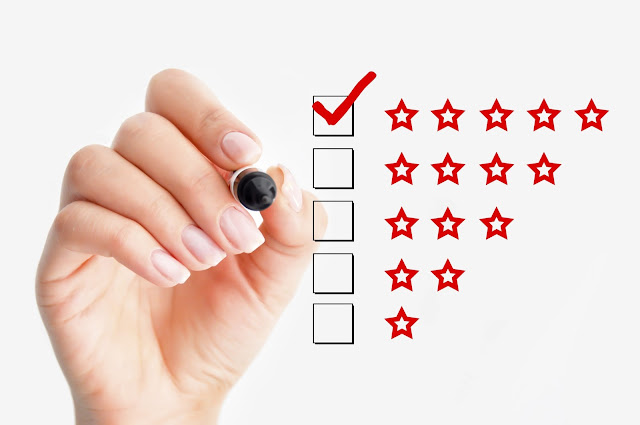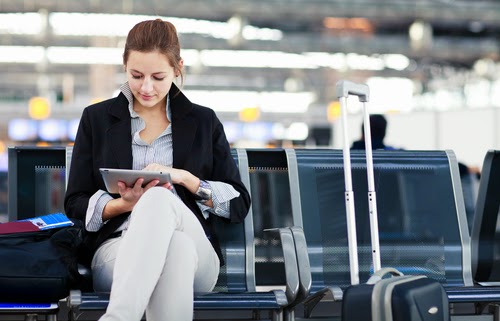77% of travellers usually or always read reviews before booking a hotel. 80% of travellers read 6-12 reviews before booking the hotel. Those are significant numbers presented by TripAdvisor’sresearch. If you think it over, you will come to one conclusion. As you probably have a lot of competitors, each mistake can cause the loss of potential business. Why? Because your guests care about their experience, not your business. Thus at this moment, negative reviews are your worst enemy. I think that the well-known rule saying that 9 positive reviews and 1 negative sell more than 10 positive ones doesn’t apply in hospitality anymore. Instead, the single negative review can cause you trouble that will degrade your position not only in booking engines but in mind of your potential guests, too.
Note: Just to remind you, when you receive a negative review on Booking, you need at least 3 positive ones to restore your previous rating. Take 2, 3, 10 negative ones and multiply them by 3. As I said, trouble.
These days, booking engines requests guest to rate the hotel they visited 2 or so days after they check out. Wait a second. Isn’t it little too late? In Hospitality 2.0, guests should be able to affect their stay while they are still accommodated. The feedback should come in real-time. This way, each guest can contribute to quality of her stay. Small problems (missing toilet paper, noisy room, etc.) should be easily taken care of instead of seeing their “passionate” description on review sites later on. Will it affect your rating? It certainly will.
You will not make it without first class customer service
Before we start, you should keep one thing in mind. You will not be able to please your guests unless you are ready to commit in high level customer service. What am I talking about? Certainly not about amenities you have at your disposal. There are other factors that matter more: willingness, decency, joy, helpfulness and humility. If you can swallow your pride and provide your guests with these, they will enjoy the “soul“ of the hotel instead of equipment only. You cannot be perfect anytime, no one is. However, your attitude to solve the problem in case it arise will definitely make a difference.
Give a chance to complain during the stay
The difference between positive and negative review is not just in a way of handling a complaint. Even more crucial is if you have an opportunity to handle it or not. Many times the guest faces some minor problem in the room (Wi-Fi or TV doesn’t work), she doesn’t want to call the front desk and permanently forget about it when they are around (I think this is the case of more people than solely mine). You might think everything is okay, however, once this guest is back at home, she turns on Booking, TripAdvisor and all other possible media and doesn’t hesitate to write about it. W-R-O-N-G! When something like this happens, you failed in the lesson “Know your guests 101“.
What you should do is to make it easy for your guests to complain during their stay in the way you can identify them. If you know who the guest is, you can get in touch and solve the problem immediately. In other words, you can turn unsatisfied guest to satisfied one until she leaves. The way you will do it (discount, extra free service, apology) is a matter of your policy, and only sky is the limit here. But medium that will allow the guests to let you know is what matters here.
There are several options to find out that there is a problem:
1. Complaint box
Quite old school thing that can work especially well for people who are not that engaged in the technology. Let them share their feelings about your hotel via piece of paper and pencil. Don’t forget to include the space for the room number and also ask for it with call to action on the feedback form.
2. Complaint kiosk
You might saw a huge machine with the keyboard asking yourself “What does this thing do?”. In many cases it can be used to gather information about the hotel and the area, as long as it can allow guests to post some comment in. Put this machine to the frequently visited place in your hotel so it will not be overlooked (front desk, restaurant). It will increase your chances to collect some thoughts and suggestions. However, the price of these machines might not be favorable.
3. Mobile application
Many hotel mobile applications provide the guest with the feedback feature. Moreover, adding maintenance as your live chat option might be a vital step, too. It ensures guest can ask for help anytime something is going wrong. As guests can let you know immediately by picking up their smartphone or tablet, you can solve the problem quickly. As you usually exactly know who complained, you are able to provide nice gesture to say you are sorry. If the price is a matter for you, there are several providers on the market that can make it affordable for you. Remember that your goal is to listen to your guests, react to their complaints and once they want to tell the world, they will praise you instead of plastering you all over the Internet.
How would you ensure your guests leave satisfied? Share you thoughts and experience in comments below.
 This is a guest post by Lukáš Kakalejčík, Marketing Specialist at RoomAssistant and PhD. candidate at Technical university of Košice, Faculty of Economics. He focuses on digital marketing, analysis and business development.
This is a guest post by Lukáš Kakalejčík, Marketing Specialist at RoomAssistant and PhD. candidate at Technical university of Košice, Faculty of Economics. He focuses on digital marketing, analysis and business development.










